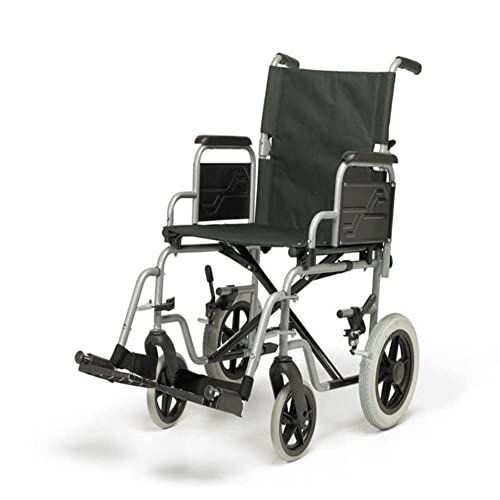mobility_scooters3737
About mobility_scooters3737
5 Laws That Can Help The Mobility Scooters Industry
Navigating the World of Mobility Scooters: A Comprehensive Guide
In an age where mobility is increasingly acknowledged as an essential aspect of lifestyle, the need for assistive devices has risen. Among these, mobility scooters stand apart as a versatile and empowering alternative for people with mobility challenges. This comprehensive guide explores the world of mobility scooters, providing insights into their types, benefits, acquiring factors to consider, and upkeep pointers.
Understanding Mobility Scooters
Mobility scooters are motorized automobiles created to assist people with mobility problems in moving around more easily and separately. They are especially helpful for those who find strolling tough due to conditions such as arthritis, multiple sclerosis, or post-surgical healing. Unlike manual wheelchairs, mobility scooters require minimal physical effort, making them an exceptional option for extended use.
Types of Mobility Scooters
-
Three-Wheel Scooters
- Pros: More maneuverable, lighter, and simpler to keep.
- Cons: Less stable on rough terrain.
- Best For: Indoor and smooth outdoor surfaces.
-
Four-Wheel Scooters
- Pros: More stable, better on rough terrain, and can carry much heavier loads.
- Cons: Bulkier and less maneuverable.
- Best For: Outdoor use, specifically in parks and on irregular surfaces.
-
Portable Scooters
- Pros: Lightweight, collapsible, and simple to transport.
- Cons: Limited variety and speed.
- Best For: Travel and periodic use.
-
Durable Scooters
- Pros: Built to deal with heavier users and rugged environments.
- Cons: More pricey and less portable.
- Best For: Users over 300 pounds or those who need to browse rough terrain.
-
Standing Scooters
- Pros: Provide a standing position, which can be useful for users who can not sit for long periods.
- Cons: Limited stability and range.
- Best For: Users who prefer standing and need short-distance support.
Benefits of Mobility Scooters
-
Boosted Independence
- Mobility scooters enable users to travel longer distances without tiredness, allowing them to participate more fully in day-to-day activities and gatherings.
-
Improved Safety
- With functions like safety belt, anti-tip wheels, and brake systems, mobility scooters provide a much safer option to manual wheelchairs and strolling aids.
-
Convenience and Support
- Adjustable seats, backrests, and armrests make sure a comfy ride, reducing the stress on the user’s body.
-
Cost-efficient
- While the initial financial investment can be significant, mobility scooters are frequently more economical in the long run compared to frequent taxi rides or specialized transportation services.
-
Social Inclusion
- Mobility scooters assist in higher social interaction by allowing users to take part in community activities and keep a more active lifestyle.
Elements to Consider When Buying a Mobility Scooter
-
User Needs and Abilities
- Evaluate the user’s physical condition, mobility requirements, and day-to-day activities to determine the most ideal kind of scooter.
-
Size and Weight Capacity
- Guarantee the scooter can accommodate the user’s size and weight easily and safely.
-
Range and Speed
- Think about the typical distance and speed needed for day-to-day use. Some scooters have a series of as much as 30 miles on a single charge.
-
Portability
- If travel is a concern, go with a portable scooter that can be quickly dismantled and carried.
-
Upkeep and Support
- Select a trusted producer that provides trusted client service and maintenance assistance.
-
Budget plan
- Set a spending plan and explore choices that provide the best worth for money. Consider funding choices and possible insurance coverage.
Upkeep Tips for Mobility Scooters
-
Routine Cleaning
- Clean the scooter frequently to avoid dirt and particles from affecting its performance. Utilize a soft fabric and moderate cleaning agent.
-
Battery Maintenance
- Follow the maker’s standards for battery charging and upkeep. Frequently inspect the battery level and avoid deep discharges.
-
Tire Inspection
- Examine the tires for wear and proper inflation. Change or fix as needed to make sure a smooth and safe trip.
-
Lubrication
- Oil moving parts such as the chain and equipments to lower friction and avoid wear.
-
Professional Servicing
- Schedule routine professional maintenance to attend to any concerns and ensure the scooter remains in optimal condition.
FAQs About Mobility Scooters
-
Are mobility scooters covered by insurance?
- Some insurance coverage plans, including Medicare, might cover the expense of mobility scooters under specific conditions. Consult your supplier for specific information.
-
Can I utilize a mobility scooter inside your home?
- Yes, lots of mobility scooters are designed for both indoor and outdoor usage. Guarantee the scooter is ideal for the type of surface areas you will be browsing.
-
How quick can mobility scooters go?
- The speed varies by model, but the majority of mobility scooters have an optimal speed of 4 to 8 miles per hour.
-
Do I need a license to run a mobility scooter?
- In most countries, a license is not needed to run a mobility scooter. Nevertheless, it is essential to follow local regulations and traffic laws.
-
Can I travel with a mobility scooter?
- Numerous cheap mobility Scooters near me scooters are created to be portable and can be taken apart for travel. Consult airline companies and transportation companies for specific requirements.
Mobility scooters are a transformative tool for individuals with mobility difficulties, providing a mix of self-reliance, safety, and convenience. By understanding the various types of scooters, thinking about crucial buying elements, and following maintenance best practices, users can maximize their mobility scooter and lead a more active and satisfying life. Whether for everyday commutes or leisurely trips, a well-chosen mobility scooter can be a valuable companion on the journey to enhanced mobility and lifestyle.
Sort by:
No listing found.

